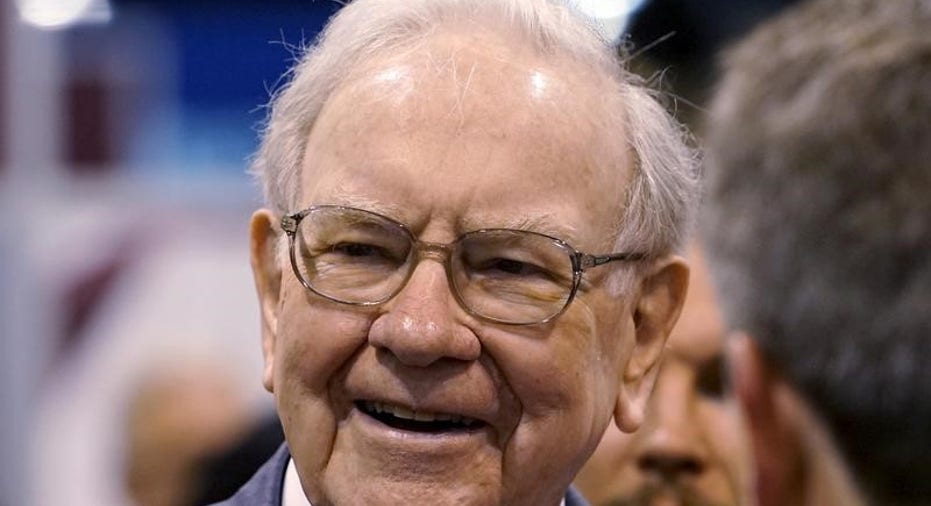Buffett's Berkshire Pressed to Disclose Political Spending

Berkshire Hathaway Inc. (NYSE:BRKA) has largely avoided politics, but the pressure for more disclosure is increasing.
Shareholder advisory firms Glass Lewis & Co. and Institutional Shareholder Services Inc. are recommending that Berkshire shareholders approve a resolution asking for a twice-yearly report on the company's political contributions and expenditures. Berkshire is run by billionaire Warren Buffett, a longtime Democrat.
Berkshire's board opposes the resolution, arguing that political contributions make up less than 0.1% of Berkshire's annual expenditures and the parent company doesn't make any contributions. Berkshire subsidiaries including BNSF Railway and Berkshire Hathaway Energy do make political contributions. The vote on the matter will be finalized Saturday at the company's widely attended annual meeting in Omaha, Neb.
Glass Lewis and ISS say the company's current disclosures are insufficient and the board's oversight of political spending is unclear.
"Berkshire Hathaway -- the parent company -- has never made a contribution to any presidential candidate (nor any other political candidate) during my 52 years as CEO," Mr. Buffett said in an email. "I am sure that some of our subsidiaries -- in particular those in heavily regulated industries -- make political contributions and employ lobbyists. I do not participate in these decisions and Berkshire parent has never, to my knowledge, used a lobbyist."
Mr. Buffett said he and Berkshire's vice chairman, Charles Munger, have never solicited political contributions from a Berkshire employee or vendor. "Over the decades, I've learned of a couple of our executives that were doing so and have told them to stop," he said.
The resolution was proposed by Clean Yield Asset Management on behalf of shareholders Tom Beers and Mary Durfee. Clean Yield has proposed similar resolutions at other companies.
Political-contribution reporting is a common topic for shareholder resolutions, and Glass Lewis said it supported about half of such proposals last year. ISS said its policy is to generally support increased disclosure of political spending.
Shareholder resolutions are unlikely to pass at Berkshire, where Mr. Buffett, the company's chairman, controls 32.7% of the voting power. In his recent annual letter to shareholders, Mr. Buffett said that the proponents of shareholder resolutions "will be given a reasonable amount of time to state their case" at the meeting.
Mr. Buffett weighs in on political issues from time to time and donates his own money -- not Berkshire's -- to causes and candidates he supports. He also donates $5,000 a year to BNSF's political action committee, he said. He campaigned for Hillary Clinton and criticized President Donald Trump before November's presidential election. But since then, he has mostly stuck to conciliatory remarks.
A few days after the election, Mr. Buffett told CNN that Mr. Trump "deserves everybody's respect." He has spoken positively about immigration in recent months but hasn't directly addressed the current administration's actions.
Mr. Munger criticized Mr. Trump before the election but has offered measured praise since then.
"The Trump administration has learned a hell of a lot," Mr. Munger said in an interview last month. "It isn't like they're a bunch of crazy idiots. So I'm encouraged."
Berkshire was a big beneficiary of the postelection stock rally, with its shares climbing to records.
Some of the Trump administration's proposed policies could benefit Berkshire, including a lower corporate tax rate and increased infrastructure spending. Mr. Buffett said he expects to receive questions about such policies at the annual meeting, and that "the answers are not always simple."
But Mr. Munger said that Berkshire has no official position on political issues and he doesn't expect to talk much about politics at the annual meeting.
"The TV is politics all day. Why would we want to turn the Berkshire meeting into politics?" he said. "Berkshire is the least political company you're going to find."
Other CEOs have been more outspoken about political issues in recent months, especially in response to a January order temporarily banning U.S. entry to people from some Muslim-majority countries.



















